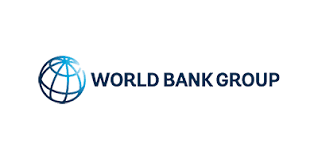CSJ Participates In World Bank’s Training For CSOs On Environmental And Social Sustainability
-
December 13, 2021
- Posted by: Center for Social Justice

The Centre for Social Justice (CSJ) Nigeria has participated in a World Bank orientation exercise for civil society organisations on the bank’s engagement activities in Nigeria.
The training which was focused on two areas of environmental and social sustainability and the World Bank’s operation portal was anchored by the World Bank’s Citizens Engagement Consultant, Greg Anyaegbudike.
According to Anyaegbudike, one of the goals of the meetings was to ensure that voices of citizens are heard within policy frameworks and to ensure that every information about World Bank’s financed projects are open to the public.
“This session will allow for more knowledge on how to access the information on the bank’s website for accountability, transparency and engagement,” he said.
Also, Nneka Okereke, a Senior Social Development Officer at the World Bank said the Bank interacts with hundreds of CSOs every day throughout the world, engaging with them through information sharing, policy dialogue, strategy consultation, operational collaboration, and institutional partnerships.
Beyond policy dialogue and operational collaboration, CSOs are also claiming a seat at the WBG governance table. CSO representatives, for instance, serve on the steering committees of the Global Partnership for Social Accountability (GPSA) and the Global Agriculture and Food Security Program (GAFSP) in both cases helping to allocate resources.
CSO representatives also serve in advisory bodies of several WBG programs and funding mechanisms including the Citizens Engagement Framework, Health, Nutrition, and Population CSO Consultative Group, Global Environment Facility (GEF), and Climate Investment Funds (CIFs).
Okereke said that the meeting was significant for CSOs because not knowing who and where to address complaints about the bank’s activities make room for delayed responses.
“Development initiatives should be environmentally and socially sustainable. This means that people and the environment are not harmed by the projects we finance,” She said.
Speaking on the theme: “Enironmental and Social Framework (ESF)- protecting people and the environment in investment projects” Okereke said ESF enables the World Bank and borrowers to better manage environmental and social risks of projects and to improve development outcomes.
The ESF offers broad and systematic coverage of environmental and social risks. It makes important advances in areas such as transparency, non-discrimination, public participation, and accountability—including expanded roles for grievance mechanisms. It brings the World Bank’s environmental and social protections into closer harmony with those of other development institutions.
Ngozi Udolisa, a senior operations officer, also spoke on how to navigate the World Bank portal for easy access to project information.
